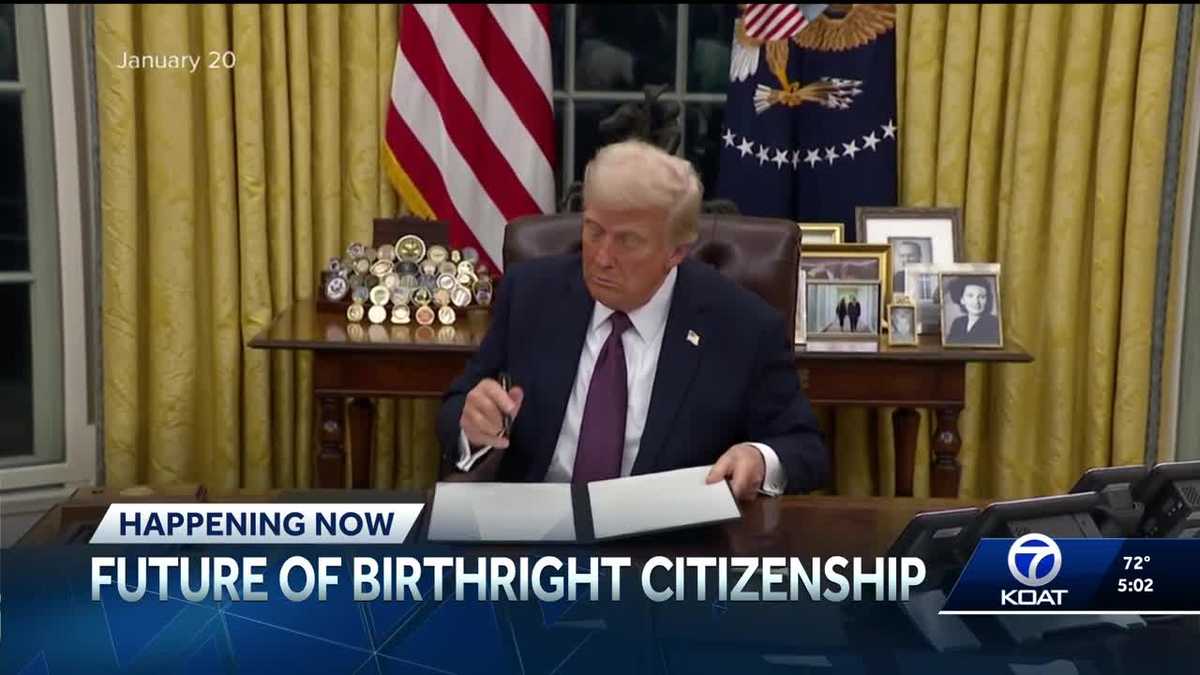Arguments were heard by the U.S. Supreme Court about President Trump’s executive order regarding birthright citizenship.Trump has worked to end the legal right to citizenship for all children born in the U.S. Birthright citizenship has been guaranteed to those born in the U.S. by the Fourteenth Amendment. It was ratified in the U.S. Constitution in 1868. However, the highest court isn’t ruling on it yet. The Supreme Court will instead make a decision on if lower courts hold the power to block presidential actions.KOAT legal expert John Day explains how the jargon surrounding the language of the Fourteenth Amendment has evolved over the more than century-long legal precedent.”Well the definition was real specific when it was passed, which was after the Civil War,” Day said. “It was mainly directed at the descents of people who had been enslaved. The idea now it’s trying to be applied in a much different context many years later, that’s one of the issues that’s going to have to be decided.”Follow us on social: Facebook | X/Twitter | Instagram | YouTubeOne argument being made against birthright citizenship is the phrasing, “under the jurisdiction of,” which can be interpreted as a foreign government having legal precedence over said person. Day explains the conflicting side’s standpoint on their legal status.”The other side of the argument is if you’re in the United States, you’re subjected to the jurisdiction of the United States,” Day said. “It’s going to be a clash of two interpretations and that’s really what underlies this and challenging the Trump Administration’s executive orders.”Action 7 News On The Go: Download our app for free
Arguments were heard by the U.S. Supreme Court about President Trump’s executive order regarding birthright citizenship.
Trump has worked to end the legal right to citizenship for all children born in the U.S.
Birthright citizenship has been guaranteed to those born in the U.S. by the Fourteenth Amendment. It was ratified in the U.S. Constitution in 1868.
However, the highest court isn’t ruling on it yet. The Supreme Court will instead make a decision on if lower courts hold the power to block presidential actions.
KOAT legal expert John Day explains how the jargon surrounding the language of the Fourteenth Amendment has evolved over the more than century-long legal precedent.
“Well the definition was real specific when it was passed, which was after the Civil War,” Day said. “It was mainly directed at the descents of people who had been enslaved. The idea now it’s trying to be applied in a much different context many years later, that’s one of the issues that’s going to have to be decided.”
Follow us on social: Facebook | X/Twitter | Instagram | YouTube
One argument being made against birthright citizenship is the phrasing, “under the jurisdiction of,” which can be interpreted as a foreign government having legal precedence over said person.
Day explains the conflicting side’s standpoint on their legal status.
“The other side of the argument is if you’re in the United States, you’re subjected to the jurisdiction of the United States,” Day said. “It’s going to be a clash of two interpretations and that’s really what underlies this and challenging the Trump Administration’s executive orders.”
Action 7 News On The Go: Download our app for free



